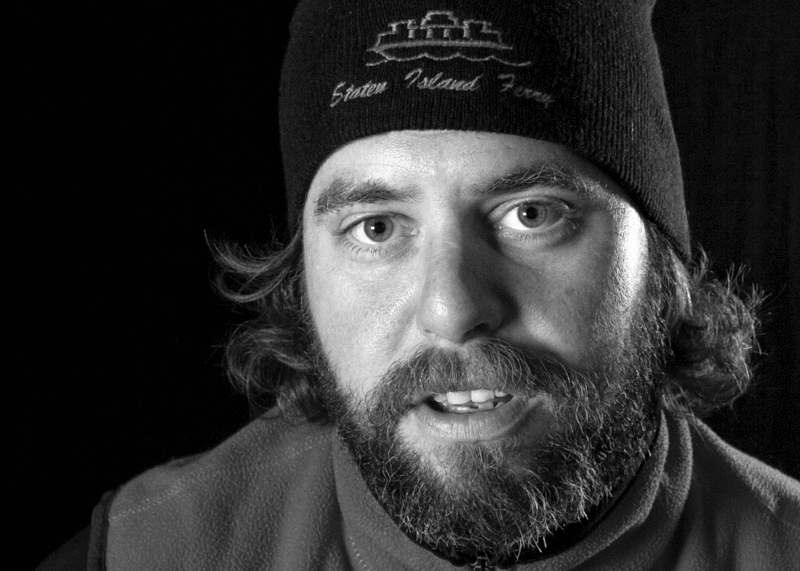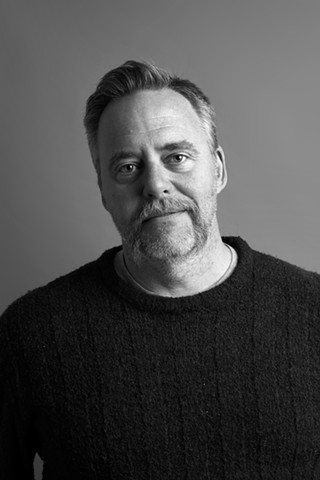
First it was the electricity. The lights in the house flickered on and off like in a horror movie. They sputtered like the toothpaste force-squeezed out of any almost-empty tube. But only some of them. The rest of the lamps shone brilliantly, just like always. Lee Anne suggested we change the light bulbs. Then we chose to ignore it, as some of the lights still worked. What did it matter that the others, in a house with hundred-year-old wiring, blinked like neon?
Or perhaps it was the ankle that started it. I had spent the long winter in the gym, dutifully trying to stay in shape. I went to spin class at the YMCA five or six days a week; sometimes, incredibly, at six in the morning in the dark and the blue-black cold. Pedaling and pedaling, sweating and pedaling, gasping and sweating and pedaling, listening to the instructors as they barked out the next command—up! down! turn it up a notch! sprint!—on their headset microphones, perfectly poised on their stationary bikes like fitness Madonnas (the singing-and-dancing kind, not the mother-of-Jesus kind), setting the pace for the rest of us as we all spun maniacally toward nowhere like the kidnapped cyclists in The Triplets of Belleville.
When spring sprang, I didn’t have to come off the couch with an extra 20 pounds and atrophied muscles as in years past. I was probably more fit than when winter began. As a strategy, it worked fairly well. I experienced the low-key euphoria that success through discipline over time brings. This was short-lived, however. At the first practice of the season for my ultimate Frisbee team in early May—the Frisbee season being a major reason for my fitness regimen in the first place—I collided with another player during a scrimmage and twisted my ankle, subsequently missing six weeks of training.
Then there were the ants. (Or are, I should say, as they’re still with us.) The first day it was just one, scuttling across the back of the kitchen sink. I squashed it with my index finger and tried not to think about the social nature of ants, contenting myself with the illusion of a bold pioneer who had become separated from the colony and met an explorer’s fate. Two days later, there was a bubbling mass of brown, the size of penny, on the counter. It took me a minute or two to chase down the ants that wriggled out from under my thumb. Now the ants don’t travel in packs anymore. And I would need twice as many fingers to deal with them in their current profusion.
Then there’s my favorite jacket that I left on a plane last fall. And the garden that has yet to be planted as of late June. And the e-mail from someone I hardly know addressing me as “Bri”—who was it that okayed the societal shift toward informality that results in such presumption? Was this the same person who green lighted the short-sleeve shirt and tie combo? (And is there a Brian out there who enjoys being called Bri? For the record: I am named after Brian Boru, an 11th-century Irish warrior-king. Do you think anyone called him Bri as he looted and burned the cities of his enemies?)
And global warming, and population growth, and the war, and the laundry, and the tall grass that needs mowing.
Some days, I feel like I’ve fallen in a hole.
I may have been in a rut the day before, but now I’m fully below sea level. Looking up from inside the depression, I stare at the sky and wonder what we have left to hope for. Even if I cut the grass, it’ll only grow back. Even if we stop emitting carbon in world-killing quantities today, what kind of planet will we have left tomorrow? What does it matter if Amy Goldman is saving hundreds of varieties of tomatoes from extinction in her Rhinebeck garden? (“Arbiter of Heirlooms,” page 64.) How much of a difference is the Mines Advisory Group really making in Iraq in its effort to rid that country of unexploded ordnance? (“Deadly Harvest,” page 26.) And will we ever come to terms with the legacy of the synthetics we’ve created in the past 100 years? (“The Health Price of Plastics,” page 86.)
There is hole enough for all of us in this. It can be quite difficult at times to claw our way out. But I do it every time, pulling myself up hand over hand, cursing and sweating up a rope of my own stubbornness and will. When I get to the top, I’m back where I started. Hit reset, begin again. Tell myself the reward is in the effort.












